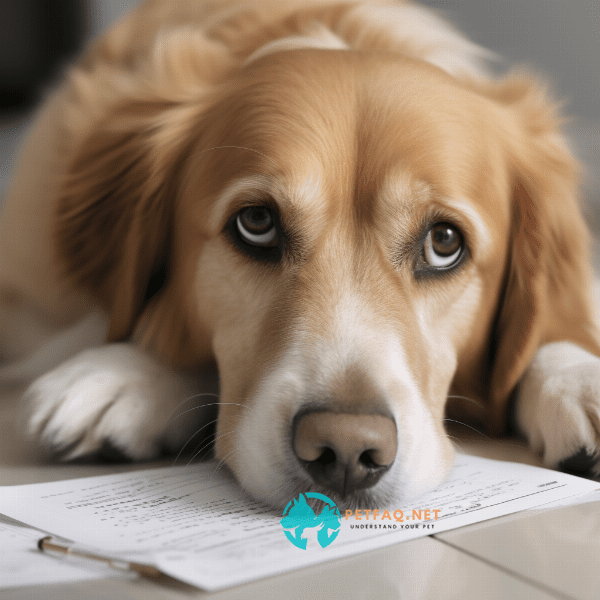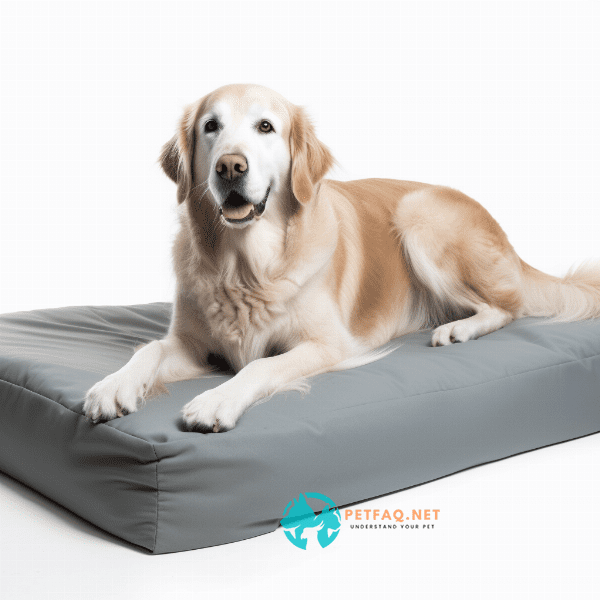Table of Contents
- 10 Common Dog Health Diseases: Symptoms, Treatment and Prevention
- The Link Between Obesity and Canine Health: What Every Dog Owner Should Know
- How to Manage and Treat Canine Arthritis for Improved Dog Health
- Understanding and Managing Canine Allergies for a Happier and Healthier Dog
- The Role of Proper Nutrition in Preventing and Managing Dog Health Diseases
10 Common Dog Health Diseases: Symptoms, Treatment and Prevention
As a dog owner, it’s important to be aware of the most common health issues that can affect your furry friend. Here are 10 common Dog Health diseases, their symptoms, treatment, and prevention measures:
1. Fleas and ticks – Symptoms include scratching, biting, and irritation. Treatment includes topical or oral medications to kill fleas and ticks. Prevention measures include regular grooming and using flea and tick preventatives.
2. Ear infections – Symptoms include ear odor, discharge, and itching. Treatment includes medication and regular ear cleaning. Prevention measures include keeping your dog’s ears clean and dry.
3. Diarrhea – Symptoms include loose or watery stool. Treatment includes medication, dietary changes, and plenty of water. Prevention measures include maintaining a healthy diet and avoiding table scraps.
4. Urinary tract infections – Symptoms include frequent urination, blood in urine, and incontinence. Treatment includes medication and dietary changes. Prevention measures include regular potty breaks and keeping your dog well hydrated.
5. Dental disease – Symptoms include bad breath, tooth loss, and bleeding gums. Treatment includes dental cleanings and proper oral hygiene. Prevention measures include regular tooth brushing and dental check-ups.
7. Arthritis – Symptoms include joint pain and stiffness. Treatment includes medication and exercise. Prevention measures include maintaining a healthy weight and regular exercise.
8. Allergies – Symptoms include itching, scratching, and skin irritation. Treatment includes medication and allergen avoidance. Prevention measures include identifying and avoiding allergens.
9. Cancer – Symptoms include lumps, weight loss, and decreased appetite. Treatment includes surgery, chemotherapy, and radiation therapy. Prevention measures include regular check-ups and prompt treatment of any suspicious lumps.
10. Heartworm disease – Symptoms include coughing, fatigue, and weight loss. Treatment includes medication and prevention measures include regular heartworm testing and preventative medication.
By being aware of these common health issues, their symptoms, treatment, and prevention measures, you can help keep your dog healthy and happy for years to come. Regular vet check-ups and prompt treatment of any health concerns are also important for maintaining your dog’s well-being.

The Link Between Obesity and Canine Health: What Every Dog Owner Should Know
As a dog owner, it’s important to be aware of the link between obesity and your dog’s health. Obesity is a growing problem in dogs, with many pet owners failing to recognize the risks associated with their dog’s excess weight. Here are a few things every dog owner should know about obesity and canine health:
1. Obesity can lead to a range of health problems, including diabetes, heart disease, joint problems, and respiratory issues.
2. Overfeeding and lack of exercise are the primary causes of obesity in dogs. It’s important to monitor your dog’s diet and ensure they are getting enough exercise.
3. Breed and genetics can also play a role in your dog’s weight, so it’s important to discuss with your veterinarian about what is a healthy weight for your dog.
4. Preventing and managing obesity in dogs involves making lifestyle changes, including dietary adjustments, exercise, and regular vet check-ups.
5. Monitoring your dog’s weight and taking steps to prevent obesity can help improve their overall health and prolong their lifespan.
By understanding the link between obesity and canine health, you can take steps to help keep your furry friend healthy and happy for years to come. As a responsible dog owner, it’s important to be mindful of your dog’s diet and exercise habits, and to seek veterinary care if you have concerns about their weight or health.

How to Manage and Treat Canine Arthritis for Improved Dog Health
Arthritis is a common health problem that can affect dogs of all ages and breeds. It can cause pain, stiffness, and reduced mobility, and can significantly impact your dog’s quality of life. If your dog has been diagnosed with arthritis, here are a few tips on how to manage and treat this condition for improved dog health:
1. Work with your veterinarian to develop a treatment plan that’s tailored to your dog’s specific needs. This may include medication, dietary changes, and exercise.
2. Provide your dog with a comfortable bed and make sure they have easy access to food, water, and their favorite toys.
3. Make adjustments to your dog’s environment to minimize the need for them to climb stairs or jump on and off furniture.
4. Engage your dog in low-impact exercise, such as walking, swimming, or slow play.
5. Consider alternative therapies, such as acupuncture or physical therapy, to help manage your dog’s pain and improve their mobility.
6. Stay consistent with your dog’s treatment plan and monitor their progress closely.

Understanding and Managing Canine Allergies for a Happier and Healthier Dog
Allergies are a common health problem that can affect dogs of all breeds and ages. Allergies in dogs can be caused by a variety of factors, including food, fleas, pollen, and dust mites. If your dog has been diagnosed with allergies, it’s important to understand and manage this condition to help your furry friend live a happier and healthier life. Here are a few tips on how to do just that:
1. Work with your veterinarian to identify the allergen that is causing your dog’s symptoms.
2. Make changes to your dog’s diet or environment to reduce their exposure to the allergen.
3. Provide regular flea and tick prevention to keep these pests at bay.
4. Keep your home clean and free of dust and debris.
5. Use hypoallergenic grooming products and bathe your dog regularly to keep their skin and coat healthy.
6. Consider medications, such as antihistamines or corticosteroids, to help manage your dog’s allergy symptoms.
By understanding and managing your dog’s allergies, you can help improve their overall health and well-being. With the right care and attention, your furry friend can continue to enjoy an active and happy life, free from the discomfort of allergies.

The Role of Proper Nutrition in Preventing and Managing Dog Health Diseases
Proper nutrition is a critical component in preventing and managing diseases in dog health . A balanced and nutritious diet provides the essential nutrients that a dog needs to maintain a healthy weight, strong immune system, and overall wellbeing. Here are a few key ways that proper nutrition can help prevent and manage Dog Health Diseases:
1. A healthy diet can help prevent obesity, which is a leading cause of many health problems in dogs, such as diabetes, heart disease, and joint problems.
2. A balanced diet that meets a dog’s specific nutritional needs can help prevent nutrient deficiencies and reduce the risk of developing health problems.
3. Proper nutrition can help support a dog’s immune system and increase their ability to fight off illness and disease.
4. Certain dietary changes can help manage specific health conditions, such as renal disease or allergies.
5. High-quality dog food can provide essential nutrients, such as protein, vitamins, and minerals, that can help improve overall health and vitality.
By prioritizing proper nutrition, dog owners can help prevent and manage a wide range of health conditions. Working with a veterinarian or animal nutritionist to develop a balanced and nutritious diet for your dog can help ensure they are receiving the nutrients they need to thrive.

Frequently Asked Questions (FAQs) about Dog Health disease:
1. How can I protect my dog from getting infected with an infectious disease?2. How do I know if my dog has an infectious disease?
3. What are some common diseases or conditions that affect older dogs?
4. What should I do if I suspect my dog has an infectious disease?
5. Is it necessary to vaccinate my dog against infectious diseases?
6. Are Australian Shepherds prone to any eye diseases?
7. How can I protect my Labrador from infectious diseases?
8. What are the warning signs of intervertebral disc disease in Dachshunds?
